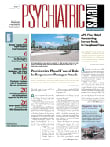Years ago, before Google, Facebook, and Twitter, an old joke went: "On the Internet, no one knows you're a dog."
Today on the Internet, everyone knows when you've acted like a dog.
And that's a good reason to pause, take a deep breath, and wait to hit the "send" button to prevent launching a potentially unprofessional comment or image out into the undying wilds of the online world.
"Anything posted can go viral," said psychiatrist and tech expert John Luo, M.D., in an interview. "Search engines will find information anywhere on the Web." Luo is a past president of the American Association for Technology in Psychiatry.
Each new development in Internet technology elicits a now-expectable round of caution about its use in the medical world. Social media are only the latest.
Younger entrants into medicine may need an extra word of caution, since they have come to adulthood at a time when they can say or depict almost anything on social media, and sometimes do, without giving adequate thought to the potential consequences of what they post.
The online world holds great promise for educating both professionals and the public, but some cautions are in order, said Luo and others.
"With the expansion of the Internet, all physicians and physicians-in-training must remember that they are viewed by others in that professional role to some extent whenever they are in public, even if they are not at work," wrote Glen Gabbard, M.D., Kristin Kassaw, M.D., and Gonzalo Perez-Garcia, M.D., in the May-June Academic Psychiatry.
Physicians should have a presence online, but one that is accurate and stays within the bounds of medical ethics and professional standards, emphasized Bryan Vartabedian, M.D., a pediatric gastroenterologist at Texas Children's Hospital in Houston.
Vartabedian appears with three other physicians in a six-minute video, posted online by the Mayo Clinic Center for Social Media, intended to provide guidance to incoming residents about proper use of YouTube, Twitter, Facebook, and their many relatives. They made the video to "encourage awareness of and discussions relating to use of social media."
Their suggestions: Don't stay away, but be aware of the potential pitfalls before hitting the "send" button. Physicians must be where their patients are, and their patients are on social-media sites, said Seattle Children's Hospital pediatrician Wendy Sue Swanson, M.D., M.Be., an expert in bioethics.
"Anything online should be considered public, whether it's a tweet, a blog, a comment," said Swanson in the video.
Of course most incoming residents have probably thumbed their way through all the social-media variants by the time they enter medical school, but they may not have thought through the implications of tossing their every thought into a medium in which it can be viewed by the entire known universe.
"Ask yourself, what will my patients think about me when they see this?" urged Vartabedian.
"This" refers to anything from college drinking pranks to confidential patient information.
Luo cited one medical school dean who invites new students into his office, shows them their openly accessible Facebook pages, and then suggests that they remove any embarrassing content.
A better idea would be to not let such content reach the Web in the first place.
"If you fail to control your own content, you're completely at the mercy of people who create content about you," said Vartabedian.
Getting snarky behind a pseudonym is not an easy way out either, said Swanson, in the Mayo video. "Anonymity protects the author, but not the reader, not the patient, and not the profession."
The British Medical Association recently issued guidelines for using social media, reminding members about their duty to protect patient confidentiality, the value of using conservative privacy settings to limit access to online postings, and to declare any conflicts of interest.
Finally, excesses on the Web can work both ways, said Luo. He recalled the instance of a woman who spent much time ranting online about the shortcomings of psychiatry even as her son was a patient in a local clinic. That could harm the patient-psychiatrist relationship if the doctor sees the mother's words, he said.
Finally, just to complicate matters, while caution may be the watchword of the day when it comes to maintaining professional conduct online, the ubiquity and openness of social media have already blurred the line between the personal and the public, said Luo.
"The idea of privacy as we know it is changing," he stated.
